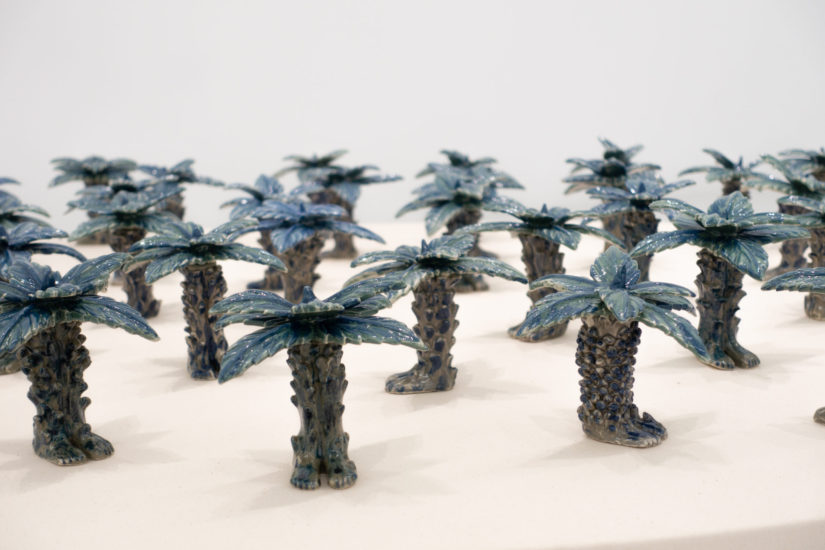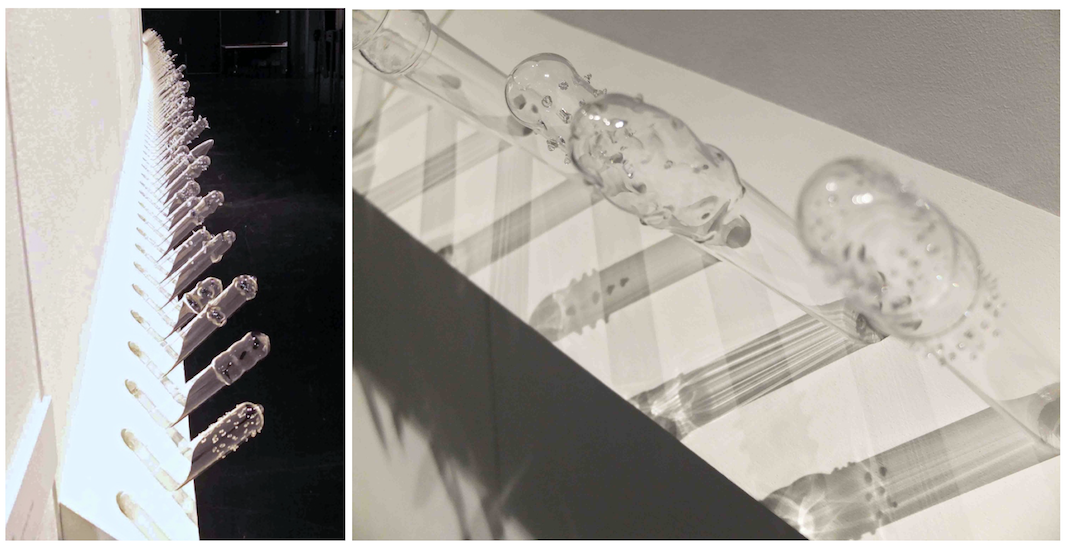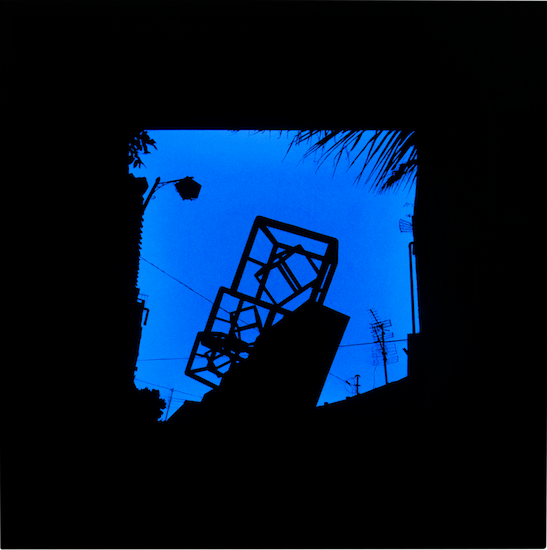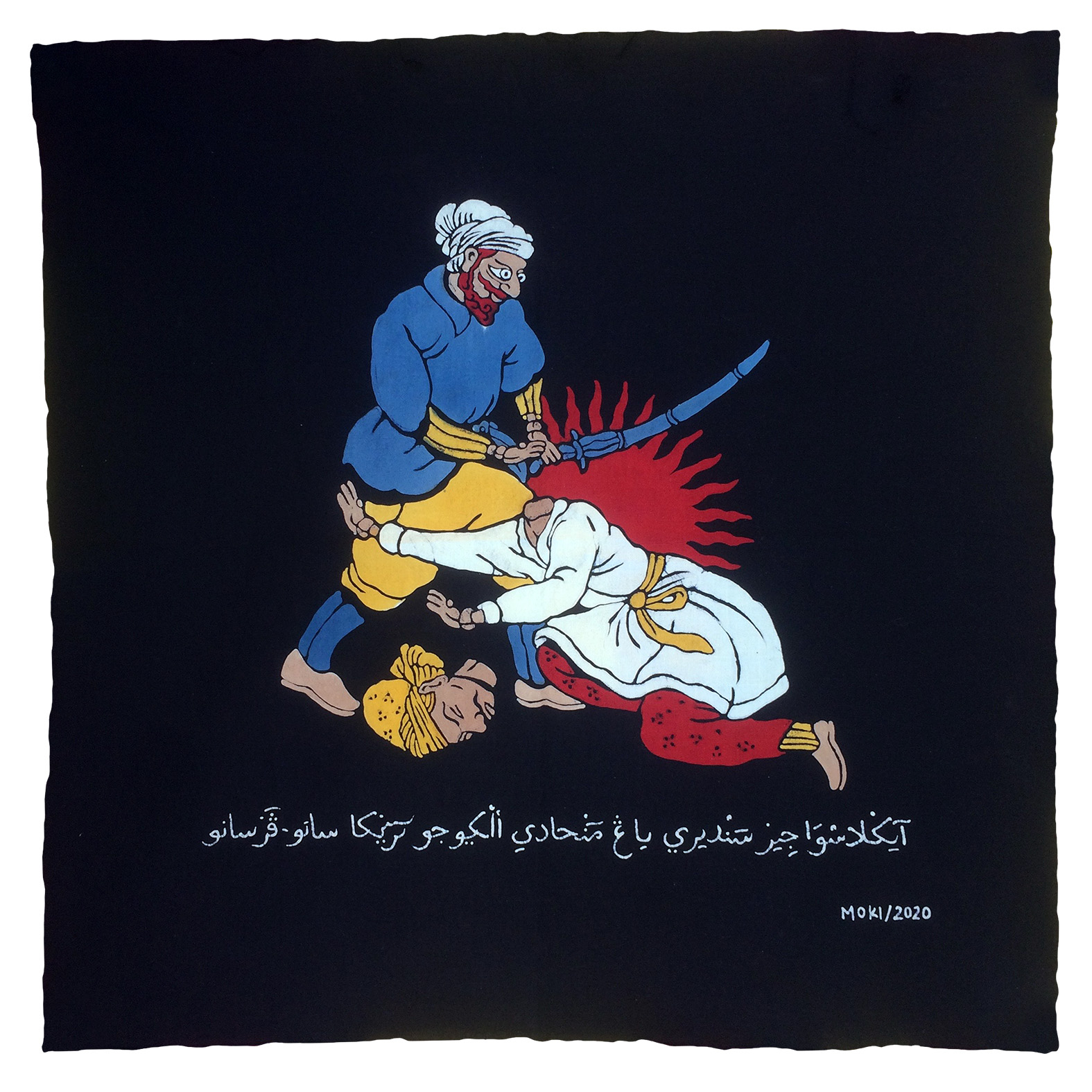Yavuz Gallery Singapore is proud to present There’s no place like, a group exhibition featuring Indonesian artists: Muhammad Akbar, Prihatmoko Moki, Elia Nurvista and Patricia Untario. Traversing across sculpture, print and light installation, the exhibition showcases artists working against the grain in their chosen materialities and subjects. Informed by global ideas and interactions, the artists exhibit unconventional work representing their personal and collective journeys in response to their Indonesian place in the world.
Elia Nurvista debuts a new body of work consisting of hundreds of small ceramic sculptures examining the palm oil industry and its broader implications on society alongside familial history. Patricia Untario’s ethereal and delicate glass sculptures, Silent, explores conversations, or its lack thereof, within Indonesia’s discourse on sex.
Both Muhammad Akbar takes on the medium of light and colour – through moving installations and lightboxes that distort and disrupt sensorial perceptions, while touching upon the their own personal memories of time and space.
Lastly, Prihatmoko Moki challenges notions of originality and the copy, through a re-presentation of the traditional Cergam (graphic novel) and Wayang Beber (scrolls of puppet theatre), offering a new reading on Indonesian traditions and its popular culture.
ABOUT THE ARTISTS AND THEIR WORKS
Muhammad Akbar (b. 1983) is an experimental filmmaker and photographer that examines the boundaries between a spectator and a spectacle. His works invite viewers to question the duality of social control through moving visual awareness, with images that are presented in an installation or on a flat screen. In 2013, Akbar started his Il Fait Bleu series, a video projection of sky footage from sunrise to sunset with silhouettes of La Rochelle, France during a residency there. The solid blue sky reminded him of the television’s or VFX’s blue screens when there’s no signal – as if no value is worth to be presented. For Akbar it spoke of the absence of meaning in a visual identity of an urban space, whether it’s of a monument, statue, installation or ornament. Akbar has exhibited across Southeast Asia and in Europe, including at: the National Gallery of Indonesia (2018, 2016, 2013, 2011, 2007); Cemeti – Institute for Art and Society, Indonesia (2016); and Jogja National Museum, Indonesia (2015), amongst others. In 2007, he won the ASEAN New Media Art Competition, Indonesia, and in 2014 was the artist-in-residence at Centre Intermondes, La Rochelle, France. One of Akbar’s Il Fait Bleu work was recently acquired by the Singaporean Art Museum.
Prihatmoko Moki’s (b. 1982) works expand on the boundaries of the traditional printmaking process, reinterpreting them across silkscreen, mural, comics, installations, as well as performance in collaboration with writers, actors, traditional dancers and musicians. His works challenge notions of repetition and the copy, blurring the dichotomy between fiction and history; ‘reprinting’ Indonesian histories through various visual vocabularies that can be seen and read in multiple grand narratives. Incorporating local popular images and culture such as the Cergam and Wayang (based upon Islamic epics from Javanese and Middle Eastern literature), Moki’s works re-present a contemporary reading on local wisdoms. Moki has exhibited extensively across Asia and Europe including at: Framer Framed, Netherlands (2018); National Gallery of Indonesia (2018); 4A Centre for Contemporary Asian Art, Australia (2014); Decima Biennial Havana, Cuba (2008); amongst others.
Elia Nurvista’s (b. 1983) practice intersects between art and social research, taking particular focus on the discourse around food: its production, distribution and broader implications on society. Food in various forms — from the planting of crops, to the act of eating and the sharing of recipes — are Nurvista’s entry point to exploring issues of economics, labour, politics, culture and gender. Her practice is also concerned with the convergence between food and commodities, and their relationship to colonialism, economic and political power, and status. She works across a wide array of mediums: from sculptures created from crystallised sugar, painting, video, community-based projects and workshops. In 2015, Nurvista co-founded the food study group Bakudapan. Nurvista has exhibited extensively across Asia and Europe, and recent curated exhibitions include: Dhaka Art Summit: Seismic Movements, Bangladesh (2020); Interrupted Meals, HOW Art Museum, China (2020); On the Nature of Botanical Gardens, Framed Framed, Netherlands (2020); Karachi Biennale, Pakistan (2019); Singapore Biennale (2019); 9th Asia Pacific Triennial of Contemporary Art, Queensland Art Gallery | Gallery of Modern Art, Australia (2018). In 2019 she presented a solo exhibition at Künstlerhaus Bethanien, Germany.
Patricia Untario (b. 1984) is a mixed-media artist that works primarily with glass, whose practice examines the relationships between the domestic, the personal and societal experience. In recent works, Untario has been interested in the conversations (and its absence of) on sex in Indonesian public education and realms. Silent is an ongoing series of condom-shaped sculptures that is too contentious to be exhibited within Indonesia. The transparent, ethereal works offer lightness to its subject, alongside paradoxical feelings of fragility and nonacceptance. Untario studied at the Vetroricerca Glass & Modern Studio, Bolzano, Italy, and has exhibited internationally at: Museum MACAN, Indonesia (2020); National Gallery of Indonesia (2019); Corning Museum of Glass, New York, USA (2019); Venice Glass Week, Italy (2019); Utrecht Central Museum, Netherlands (2010); 13th Asian Art Biennale, Bangladesh (2008), amongst others. Untario was a finalist of the Sovereign Asian Art Prize, in both the 2015 and 2018 editions.



